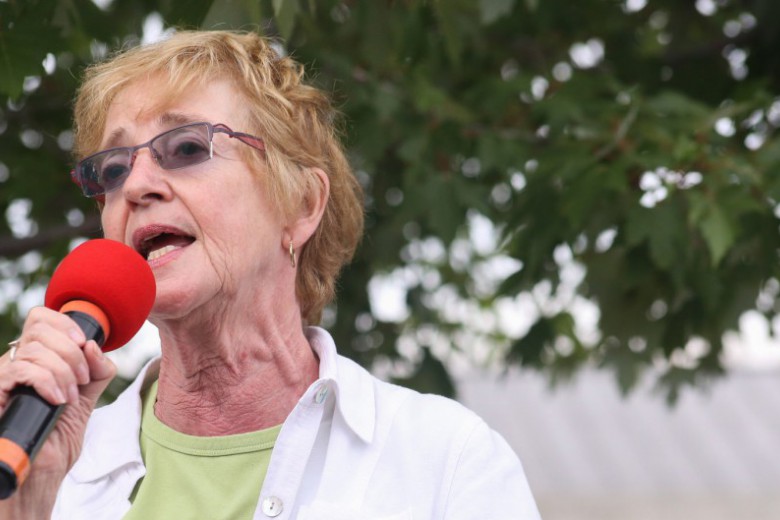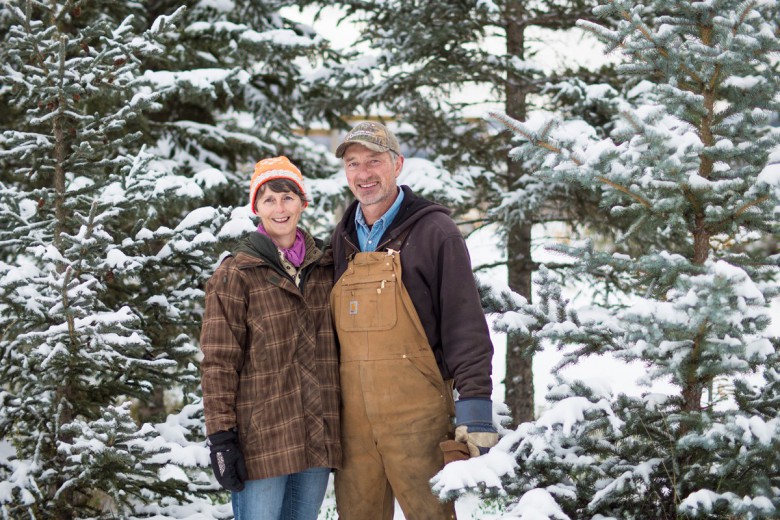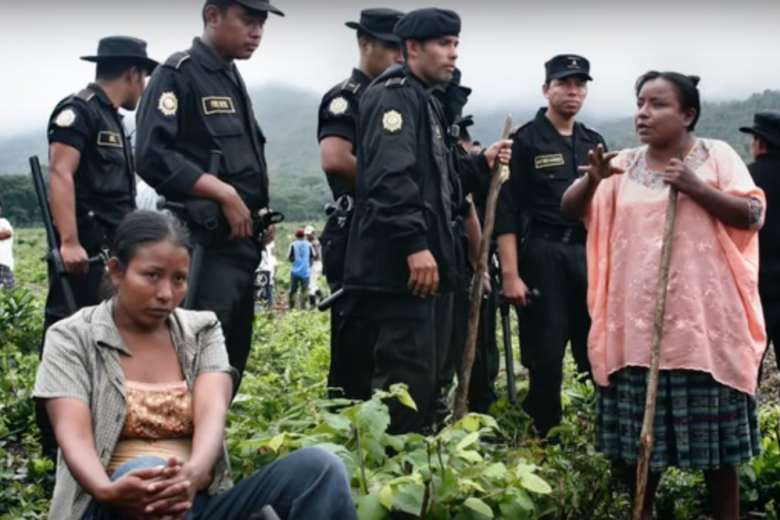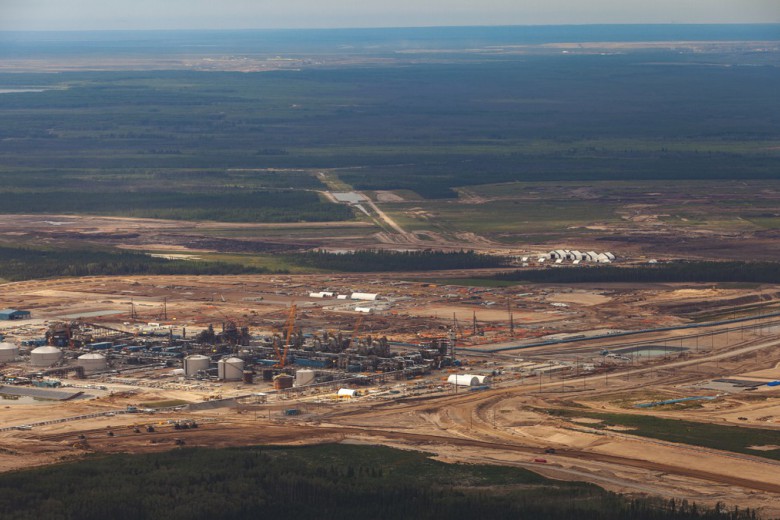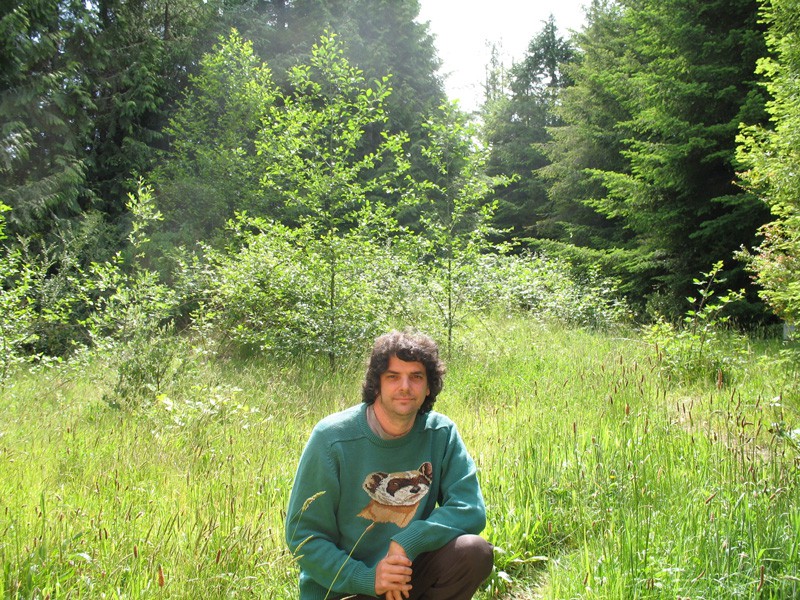
“If the book we are reading does not wake us, as with a fist hammering on our skull, why then do we read it? … what we must have are those books which come upon us like ill fortune, and distress us deeply, like the death of one we love better than ourselves, like suicide. A book must be an ice-axe to break the sea frozen inside us.” —Franz Kafka
Derrick Jensen has been called the philosopher poet of the ecological movement. His books include The Culture of Make Believe, the two-volume Endgame, and most recently How Shall I Live My Life?: On Liberating the Earth from Civilization. Common to all his work is a fierce commitment to expose the roots of the violence and destruction that underpin the comforts and privileges of civilization.
Jensen’s work is “disillusioning” in the best sense of the word: it forces us to confront the illusions with which we’ve been inculcated, allowing us to see clearly the world as it is so we can assess the choices we face as thinking, feeling beings. Reading a Derrick Jensen book is a deeply challenging process of confronting the lies that others tell us and the lies we tell ourselves.
In March of this year, Derrick Jensen joined a Regina, Saskatchewan, audience via videoconference for a wide-ranging conversation. As usual, he challenged the audience to focus on protecting life rather than lifestyle, and urged them to recognize the breadth of the changes necessary to protect life on earth. The event was sponsored by the Regina Public Interest Research Group and Regina EcoLiving, and was introduced and moderated by Briarpatch editor Dave Oswald Mitchell. This interview is adapted from that conversation.
Briarpatch: One of the key premises of your book Endgame is that civilization-especially industrial civilization-is not and can never be sustainable. I want to ask you about that, but first of all, how do you define civilization?
Derrick Jensen: I define civilization as a way of life characterized by the growth of cities. So what’s a city, then?
A city is a group of people living in numbers large enough to require the importation of resources. As soon as you require the importation of resources, two things happen: one is that your way of living can never be sustainable, because if you have to import resources then it means you’ve depleted the land you actually live on. The other is that your way of living must be based on violence, because if you require the importation of resources, then trade alone will never be sufficiently reliable. If you need a particular resource and the people the next watershed over aren’t going to trade you for it, you’re going to take it if you can.
I mean, just imagine what would happen to U.S.-Canada relations if Canadians were to stop allowing transnational corporations based in the U.S. to steal oil from the tar sands? I think you’ll find out what a real “good neighbour” policy is pretty quick.
So civilization can never be sustainable because it depletes resources faster than they can be replenished?
That’s part of it. Any way of living based on non-renewable resources won’t last. It doesn’t matter if we’re talking about copper or iron or oil, because a finite amount of it is eventually going to run out.
But that’s not all. Any way of living that’s based on the hyper-exploitation of renewable resources won’t last, either. If fewer salmon return year after year because they’re being overfished, eventually there won’t be any left.
In fact, I would say that any way of living that’s based on resources won’t last, either. “Resources” don’t actually exist: salmon don’t consider themselves a fishery resource, and trees don’t consider themselves timber resources. They’re just trees and they’re just fish.
How you perceive the world affects how you behave in the world. A Canadian lumberman once said, “When I see trees I see dollar bills.” If you look at trees and see dollar bills, you’re going to treat them one way. And if you look at trees and see the particular, individual trees that you derive shade, shelter or food from, you’ll treat them another way.
And incidentally, just because I look in the river and see fish rather than dollar bills doesn’t mean that I can’t eat those fish. I was doing a radio interview in Spokane a number of years ago, and the interviewer said, “You know, Indians exploited salmon too.” And I said, “No they didn’t. They ate them.”
He said, “What’s the difference?”
In the moment I said, “They gave them respect for the spirit in exchange for the flesh.” But I knew that answer was kind of bullshit, so that afternoon I went and sat next to a tree and I asked that tree, “What is the fundamental predator-prey relationship?” The tree gave me the answer right away: if you consume the flesh of another, you take responsibility for the continuation of the other’s community. If I consume the flesh of salmon in the river near my home, then I take responsibility for the continued existence of salmon in the river. I would say that’s true on both a cosmic level and a straight carbon-cycle level. It’s true on every level.
What do you say to people who think that industrial civilization can adapt to the environmental limits we face and make itself sustainable?
Well, where’s the energy going to come from? I mean, right now we burn 10 calories of oil for every calorie of food that’s produced. That can’t go on forever. And sure, it’s eco-groovy to put solar panels on the roof, but where are you going to get the copper for the wiring? It requires mining and it requires infrastructure. You can’t just pick and choose among these things.
When people talk about “sustainable development,” they actually aren’t talking about maintaining life on the planet. What they’re talking about is maintaining this culture to the bitter end. What do all the proposed solutions to global warming have in common? They all take industrial capitalism as a given, and the natural world as that which must adapt. That is literally insane. I mean, it’s not possible on a physical resource level. It ain’t gonna happen.
People shy away from using the word apocalypse, but it needs to be said: we are in the midst of an apocalypse. There is 10 times as much plastic as there is phytoplankton in the ocean. The planet is undergoing the largest mass extinction since the disappearance of dinosaurs. The climate is changing. There is dioxin in every mother’s breast milk. The oceans are being murdered. And we go about our days as though nothing is going wrong. What will it take for us to finally start calling this an apocalypse and responding accordingly?
Many environmental activists struggle with the hypocrisy of participating at all in a culture that’s so destructive. Does that bother you at all?
Sure, I feel hypocritical sometimes, but so what? There’s this idea among so much of the resistance that the role of an activist is to manifest some sort of moral purity. But the truth is, I don’t care about purity; I care about living in a world that has more salmon and more migratory songbirds each year than the year before. The job of an activist is not to manifest moral purity, but to confront and take down oppressive systems of power.
Several years ago I got in a big argument with a guy who said that because I use toilet paper, I am just as culpable for deforestation as the CEO of Weyerhaeuser. I didn’t know how to answer him for quite a while, but finally the answer came to me. The answer is that, yes, I am culpable, but not because I use toilet paper. I’m culpable because I consume the flesh of the tree without fulfilling my end of the bargain by stopping Weyerhaeuser.
So, sure, I can help by consuming less. Frankly, I live pretty cheaply, but that’s because I’m a cheapskate, not because I’m morally pure. There are much longer levers I can use to dismantle these systems of oppressive power than not using toilet paper.
I mean, so what if we’re hypocrites? Let’s admit that, and then let’s go break down a system of oppressive power. Let’s absolutely use the master’s tools to dismantle the master’s house. I’m happy to do that.
“The job of an activist is not to manifest moral purity, but to confront and take down oppressive systems of power.”
A reviewer for Publisher’s Weekly once said that your work “accomplishes that rare feat of both breaking and mending the reader’s heart.” But, frankly, I know a few people who haven’t made it through to the “mending.” What do you say to readers who fall into despair when they read one of your books?
Personally, I’ve actually found it quite liberating to simply feel despair. Despair is an appropriate response to a desperate situation.
One day I was just sobbing, and I called up a friend of mine, Jeannette Armstrong, who is an Okanagan Indian activist. I said to her, “This work is just killing me. It’s breaking my heart.” She said, “Yeah, it’ll do that.” And I said, “The dominant culture hates everything, doesn’t it?” She said, “Yeah, it does. Even itself.” And I said, “It has a death urge, doesn’t it?” She said, “Yeah, it does.” And I said, “Unless it’s stopped it’s going to kill everything on the planet, isn’t it?” She said, “Yeah, it is. Unless it’s stopped.” And then I said, “We’re not going to make it to some great new glorious tomorrow, are we?” She thought for a moment and then she said the best thing she could possibly say, which was, “I’ve been waiting for you to say that.”
The reason it was the best thing she could say was that it normalized my despair. It let me know that despair is an appropriate response to a desperate situation; the sorrow is just sorrow and the pain is just pain. It’s not so much the sorrow or even the pain that hurts as it is my resistance to it. It let me know that I can feel all those things and it wouldn’t kill me. I could feel that pain and still feel love.
There’s this idea that if you really recognize how bad things are you have to go around being miserable all the time. But the truth is, I’m really happy. I am full of rage and sorrow and joy and happiness and contentment and discontent. I’m full of all those things. It’s okay to feel more than one thing at the same time.
Some people say, “If things are so bad, then why don’t you just kill yourself?” Part of the answer is that I’m having a lot of fun. It’s tremendous fun to fight back. What a gas!
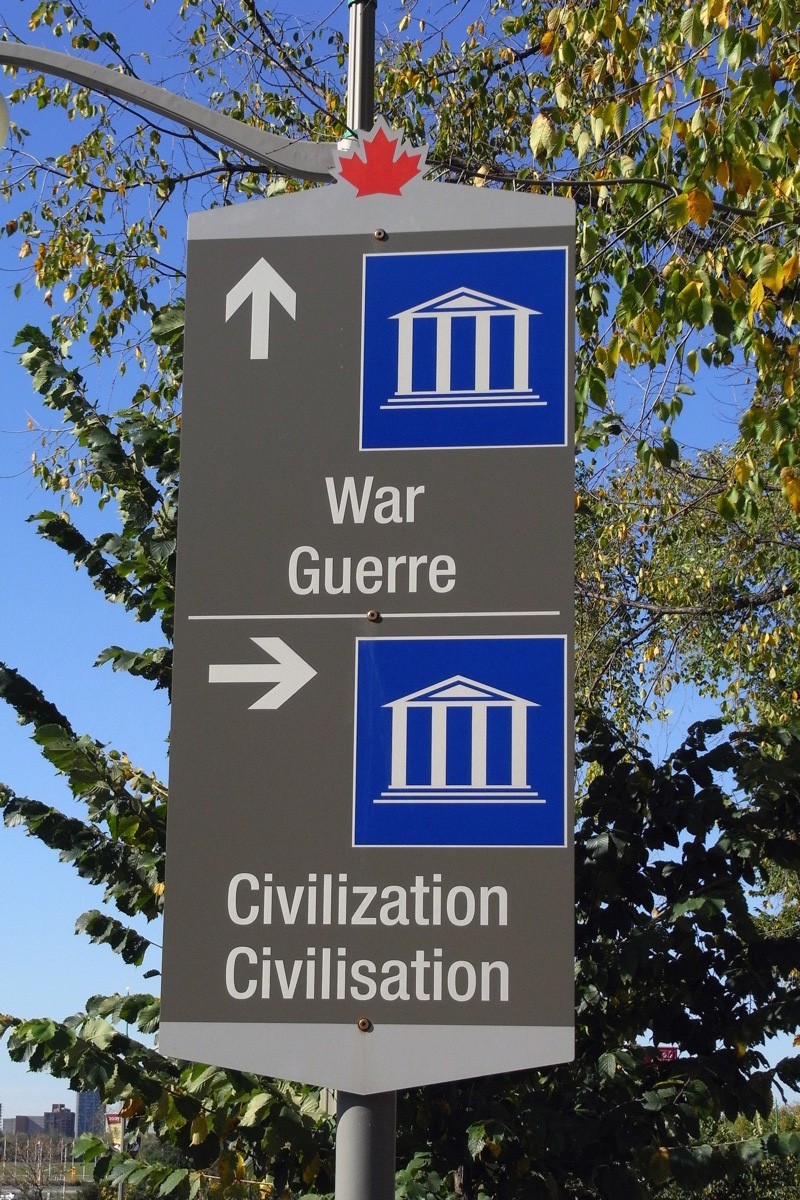
I think most people resist despair because they see it as a surrender, a letting go. You’re suggesting that letting go might not be such a bad thing?
If it means letting go of our hope that civilization can save us, then yes. You see, Jeannette helped me realize that not only could I feel rage and sorrow and despair and it wouldn’t kill me, but even better, I could feel all those things and it would kill me. There’s a wonderful thing about being dead, which is that once you’re dead they can’t touch you anymore. Not through threats or violence or promises or buying you off. You can still sing and dance and make love and fight like hell, but they can’t touch you.
When I was writing The Culture of Make Believe, I wanted to call it “The Other Side of Darkness” because what that book is about-in fact, what all my books are about-is death and rebirth. What I want to have happen when people read my books is that I want for them to die, and I want for them to be reborn. I want for the “them” that dies to be the enculturated them. And I want the “them” that emerges to be the animal them, the animal who needs habitat to survive, and who has family and community who they love and would fight to defend.
“An American five-year-old can recognize hundreds of corporate logos, but I can’t name 10 species of edible plants and fungi within 100 yards of my home. That’s insane.”
You write a great deal about “bringing down civilization” as the only means of saving the planet. Is that our only option at this point?
First of all, when I talk about bringing down civilization, a lot of people hear “ending human existence,” because this culture has managed to conflate itself with life itself. We need to recognize that they’re not the same thing-quite the opposite, in fact.
So what would bringing down civilization actually entail?
It’s a billion different acts by a billion different people. At its core, bringing down civilization entails depriving the rich of their ability to steal from the poor, and depriving the powerful of their ability to destroy the planet.
In practice, that looks like everything from writing books, to filing timber sale appeals, to fighting like hell against the transnational oil corporations by using the courts or public opinion or any other means. It involves acting singly and in organizations. It involves fighting for our lives, because those are the stakes at this point.
Bringing down civilization is about aligning ourselves with the real world, and redefining ourselves as human animals that need habitat. And that means putting the planet first. If you or your children can’t breathe the air or drink the water, then nothing else matters. That’s the bottom line.
It’s stunning how ignorant we are about the land bases that support us. I can talk about Brad Pitt and Angelina Jolie and probably most people will know who I’m talking about, but do you know the indigenous name for the place where you’re sitting right now? An American five-year-old can recognize hundreds of corporate logos, but I can’t name 10 species of edible plants and fungi within 100 yards of my home. That’s insane.
We must recognize that the culture is a culture of occupation. The planet needs to be defended against this occupation. You know, if there were space aliens deforesting the planet or releasing tonnes of carbon into the atmosphere, we would know what to do: we’d use any means necessary to stop them.
I want to be clear, though, that when I’m talking about “fighting back” I’m not just talking about physically fighting back. I’m talking about everything. I don’t believe in the revolution-versus-reform dichotomy. If we all just wait for the great and glorious revolution, there’s not going to be anything left when we finally get there. On the other hand, if all we do is defensive work, if all we do is fight to slow the pace of development, then this culture is going to continue to grind away at us until there’s nothing left.
The split isn’t between revolution and reform or violence and non-violence; the split is between action and inaction. So the first thing bringing down civilization looks like is people getting off their asses and doing something-anything. What would Tecumseh do? What would members of the French and Russian resistance in World War II do? What would members of the Danish resistance, who had a much nicer government of occupation, do? The Danes used non-violent resistance, because it would work there, and the Russians didn’t, because it wouldn’t. Use whatever tools are appropriate to your situation to protect the land where you live.
I know some people who went to Mexico to join the Zapatistas and help them, and what the Zapatistas told them was, “If you really want to help us, start the same thing at home.” We are blessed to be at the centre of the machine. We have access to vulnerabilities that the people in southern Mexico or the Amazon rainforest don’t have.
As for what people in Regina or anywhere else should do, I don’t want you to listen to me, because I don’t live there and I don’t know how to live sustainably-here or there. What I want you to do is to go to the nearest forest and ask it what it needs. Go to the nearest river and ask it what it needs. Go to the nearest soil; ask it what it needs. Go to the nearest indigenous nation; ask them what they need. And just be of service.
If you ask the land you live on what it needs, it will tell you. And then really the only question is, are you willing to do it?


